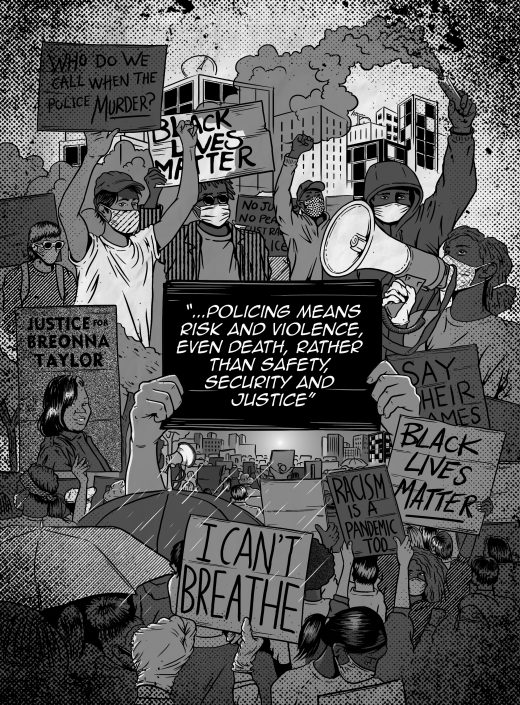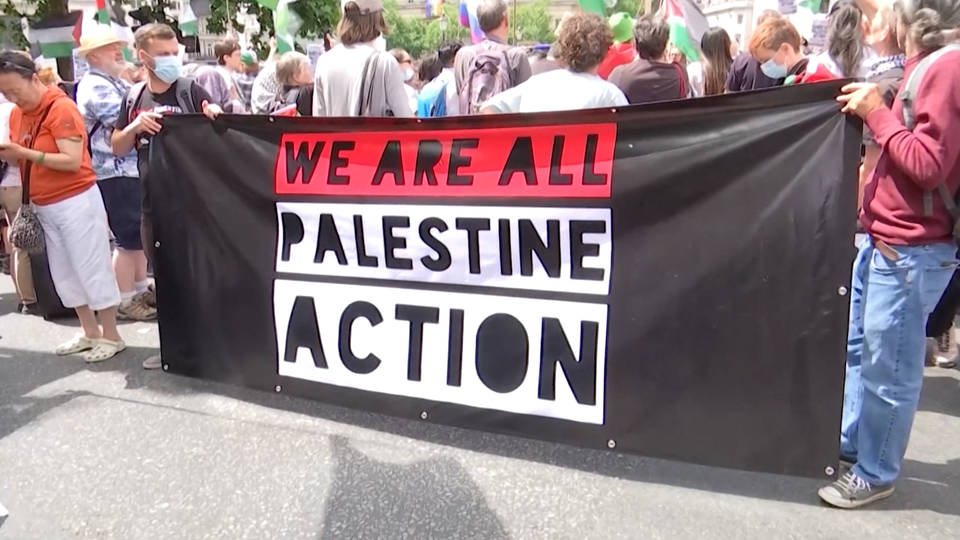Abolishing the Police
Dog Section Press
A snip at £8
Koshka Duff (Editor), Cat Sims (Illustrator)
Contributors: Guy Aitchison, Phe Amis, Melanie Brazzell, Eddie Bruce-Jones, Tanzil Chowdhury, Becka Hudson, Tom Kemp, Sarah Lamble, Daniel Loick, Chris Rossdale, Arianne Shahvisi, Vanessa E. Thompson & Connor Woodman
Inevitably this book was going to be the subject of excitement and controversy, possibly in equal measure. Just to illustrate, two very different responses we found online are:
On the negative side: If you hate the Police this is for you. If you are not a criminal and live in reality, avoid! What a load of rubbish. It’s like campaigning to get rid of the fire service without working out what to do if there is ever a fire again. Complete Delusion.
More positively: A truly remarkable publication by an even more remarkable person who has suffered so much at the brutal hands of the police. It should be made into the curricula of all schools. It is for people like Prof. Duff that we might have a better future!!
We guess this highlights the wildly different interpretations of what ‘abolition’ means. For us in Plan C, it’s a wonderful end point. For example, when we’ve talked about abolishing foodbanks, we are certainly not advocating for foodbanks to be ended next Thursday evening and for poor and working class people to go hungry. We are saying though that we want a world where no one is hungry and charitable donations of breakfast cereals and cans of baked beans are consigned to the dustbin of capitalist history. Much the same applies to abolishing the police.
Anyway, this book provides pretty sharp and comprehensive chapters, by a range of writers, which incisively describe the history of the police (in the UK founded on savage practices in Ireland – thank you Robert Peel!). There is good coverage of the cops’ legacy of colonial expansion and the unsurprising racist nature of policing, not just in the UK but pretty much worldwide. Equally powerful is the analysis of how the police is, from time to time, militarised and inextricably linked to suppression in times of war; certainly in times of industrial and civil unrest. Remember the Miner’s Strike.
Possibly the most powerful theme of Abolishing The Police is its painting of a very clear picture – the police (in whichever country) is not a valuable stand-alone institution, designed to protect the majority from ‘the other’, the evil minority; subject to a few ‘bad apples’ from time to time. Rather it is an intrinsic element of the State and its various ‘services’, many of which are, by nature, ‘bad apples’ by the lorryload. A good example is the close work the cops do with the UK Border Force, itself a frontline service designed to reinforce government’s ‘hostile environment’; and of course, the links with government agendas, the carceral prison system, and possibly most importantly, the maintenance of the thin veneer of ‘liberal democracy’. In fact, this veneer is so important that the sweeping and draconian police powers set out in the Police, Crime, Sentencing and Courts Bill of 2021 might even make a few fascists blush. The point here is that ‘liberal democracy’ actually means ‘neo-liberal ways of governing people’: giving the impression that we’re all equal in the eyes of the law and can all benefit from the trinkets of capitalism.
Actually, it’s a system designed to target ‘the other’: people of colour, low income households, travellers, LGBTQ+ people, dissidents, disabled people… really, anyone who doesn’t conform to the State’s expectations of them. People like you and me. This is why the police, as part of the State, itself beholden to capital, is fundamental to the construction and maintenance of the profoundly unequal, in-constant-crisis, world we live and breathe in: not by sleight of hand, despite various covert operations, but so obviously that many of us, our parents and grandparents, are painfully used to these divide and rule tactics and the punishment that’s meted out if we step out of line.
On this note, we think it’s notable that in the last year, there was the horrific rape and murder of Sarah Everard, followed by police brutality at a vigil in her name. We’ve seen cops sharing pictures via WhatsApp of two women of colour murdered in a London park. More recently, a woman academic of colour has reported the humiliating, violent and abusive strip search she endured, triggered by giving a bust card to a 15 year old and refusing to give her details to the police. And now we’re hearing more and more about cops charged and jailed for sexual assault (while being told it’s their job to protect all of us, particularly women, from sexual abuse and violence). In the last few weeks, we’ve learnt that Charing Cross Road police station appears to be riddled with racist, mysoginist, disablist bully boys. No doubt there’ll be an inquiry. No doubt there’ll be a report. No doubt the next Cressida Dick will carry on in the same old way with the prime minister’s support. Will anything change? Unlikely. Why? Because the cops are recruited, trained and ordered – directly or indirectly – to act as they do. Sometimes – all too often – it’s violent, unjust and illegal. Remember the sweeping changes to racist policing after the Stephen Lawrence Inquiry? No, nor do we…
But as we’ve been reminded by the prime minister and his inner circle recently, being responsible for and upholding the laws that confine us doesn’t actually mean that certain people have to abide by them.
There are commentators and reviewers that have suggested that Abolishing The Police provides ideas on and insights into how we can create a better world that leads to abolition. While it’s true that there is a lot of precious information about the ways in which carceral justice has been challenged by alternatives, with clear references to social and transformative justice and resistance around the world, this book doesn’t take us as far as some might wish in the direction of revolutionary thought and principles. Perhaps a section summarising and referencing more clearly the State and capitalism’s dependence on the police and the need to create a world without both would add a whole other dimension.
Give this book a read – it’s worth it. It could add to your knowledge and might change the way you think about the cops, what they do and why they’re there. It is based on strong academic research and the language is more accessible than you might imagine. It reflects the experiences and insights of political protesters, activists, organisers and resisters.
Book review by Olly, Plan C Bristol.





